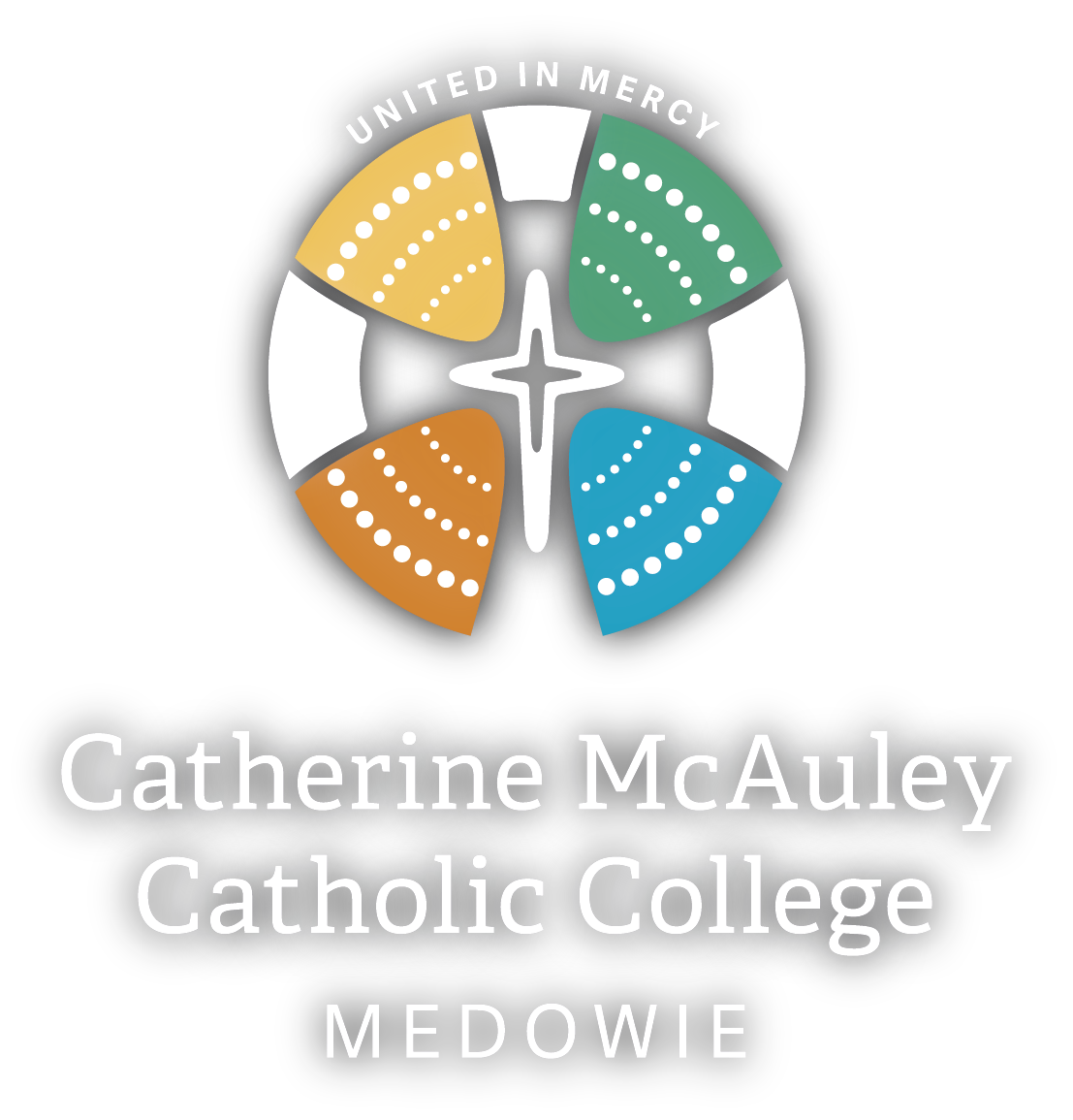Our Story
Maitland-Newcastle Director Of Schools Gerard Mowbray details the very beginnings of Catherine McAuley Catholic College, Medowie.
The kernel for the foundation of the College was a study commissioned by Bishop Bill Wright which the Catholic Schools Office carried out in late-2015 early-2016. The study was an analysis of the provision of secondary education in the Diocese of Maitland-Newcastle. Historically, schools had been built where populations existed, but over the previous 30 years it was obvious that demographics had shifted. We needed a thorough analysis of what needs existed and how the Diocese would respond.
External consultancy Key Insights, chaired by Ellen Davis-Meehan, undertook the comprehensive study and provided a neutral analysis of needs. The study included surveying every parent, student and staff member and priest in the Diocese; holding conversations with every secondary school community; staging community consultations in all regional centres; and convening an expert panel of educators and academics to provide advice. It was certainly the most exhaustive educational study undertaken in the Diocese’s history.
By mid-2016 a set of 12 recommendations were approved for implementation by Bishop Wright. These were to transform the face of secondary Catholic schooling. In response to demographic and educational needs, some key provisions included a secondary school in the vicinity of Thornton to Raymond Terrace, a secondary school to serve the northern peninsula, the development of Gateshead and Lochinvar to accommodate Years 11 and 12, the creation of a multi-campus All Saints’ College in Maitland incorporating St Peter’s and St Mary’s, and the provision of a school to accommodate secondary students at significant risk of not completing their schooling.
Today, these recommendations have translated into St Bede’s Catholic College, Chisholm (opened in 2018), St Mary’s Catholic College, Gateshead and St Joseph’s College, Lochinvar (both had their first HSC class in 2019), All Saints’ College, Maitland, now registered as a single entity and operating Years 7 to 12 on two campuses, the St Laurence Flexible Learning Centre, Broadmeadow (opened in 2019) and Catherine McAuley Catholic College, Medowie, to open in 2021. The recommendations were facilitated for implementation by director Ray Collins, Assistant Directors Gerard Mowbray and Craig Wattam, Head of Teaching and Learning Kathryn Fox, and Head of Finance Paul Murray.
The study clearly identified a significant demographic need as well as the local communities’ real thirst for a Catholic school presence somewhere on the peninsula. The public meeting held at St Michael’s, Nelson Bay was the largest community gathering the study experienced. What became clear from the study was that while there were three Catholic primary schools in the area at Nelson Bay, Raymond Terrace and Bulahdelah, the lack of a Catholic secondary school was negatively impacting on parents choosing Catholic primary schools. Further, the need to travel to Newcastle for Catholic secondary schooling was further impacting on the engagement of families. The communities were telling us loud and clear that they sought a Catholic secondary school in their own region. The numbers of school-aged children backed this up. Hence, the desire to build a school in the region.
Recommendation three of the study was formalised for implementation: to build a co-educational, Years 7–12 secondary school at Medowie. The provision of a school in this area responds to a number of factors: there is no Catholic secondary school presence on the northern peninsula; in addition, there is enrolment pressure on the inner-city Newcastle Catholic schools, which will be alleviated by the provision of this new school; furthermore, there is demographic growth in the north Raymond Terrace and Medowie areas.
Once this was developed, a suitable block of land was purchased on Medowie Road and the particular vision of Bishop Wright for a precinct was realised. The land purchased would accommodate a St Nicholas Early Learning Centre, a primary school, a secondary school and a chapel to serve the educational communities and local parish community. An educational brief was developed, and this informed the design of the college. Webber Architects then conducted a design competition.
The naming of the college was then the critical component. The most recent secondary school had been named after St Bede, so there was a preference for a female identity. Given the historical roots of Irish Catholic families on the peninsula, the very strong presence of the Mercy congregation at St Brigid’s, Raymond Terrace, St Michael’s, Nelson Bay and St Peter’s, Stockton, there was a strong argument for naming the College after Blessed Catherine McAuley. This Irishwoman, who founded the Mercy nuns, could speak strongly to the young people of today with her deep sense of social justice and her commitment to the education and healthcare of poor communities in Dublin. Bishop Wright accepted the recommendation of naming this new school Catherine McAuley Catholic College, Medowie.
An on-site ceremony was held to unveil the Foundation Stone of the College on Friday 28 October 2016.

The College was set to open in 2020. Due to the complexity of developing not only the school site, but significantly upgrading infrastructure including Medowie Road, the Development Application took far longer than was anticipated. This meant delaying the opening of the College until January 2021. However, so as not to disappoint families who were to commence in 2020, the College opened with Years 7 and 8 in 2021.
In order to effectively plan for the College’s commencement, Foundation Principal Scott Donohoe was appointed in January 2019, Assistant Principal Peter Antcliff commenced in January 2020 and Executive Assistant to the principal, Elizabeth Toscano, commenced in April 2020. Father James Odoh also joined the College team in his capacity as Chaplain. The team operated from an office in Raymond Terrace as they eagerly anticipated the school’s opening. The interest in the College is certainly true to the community support that was evident in the local meetings in 2015 and 2016.

